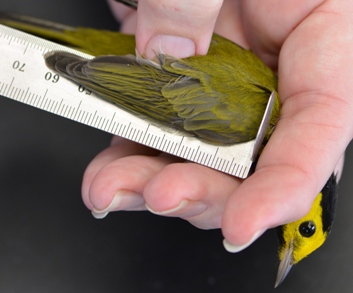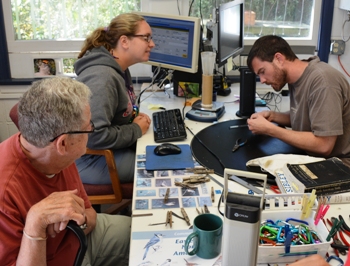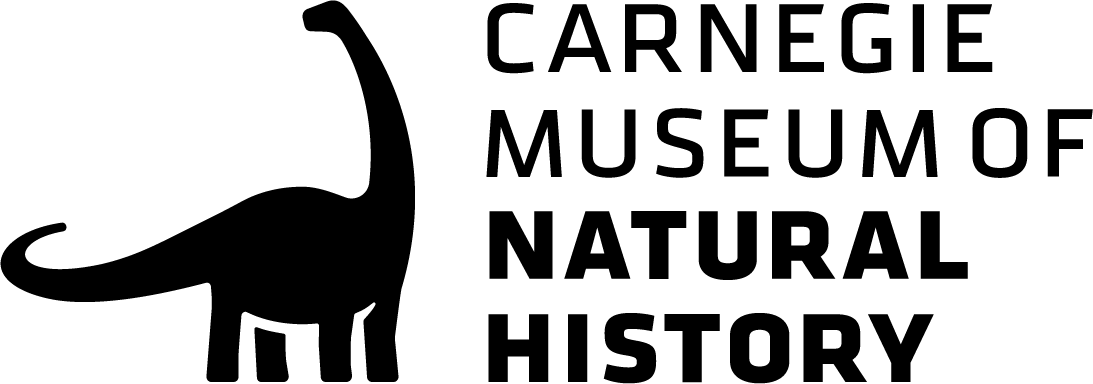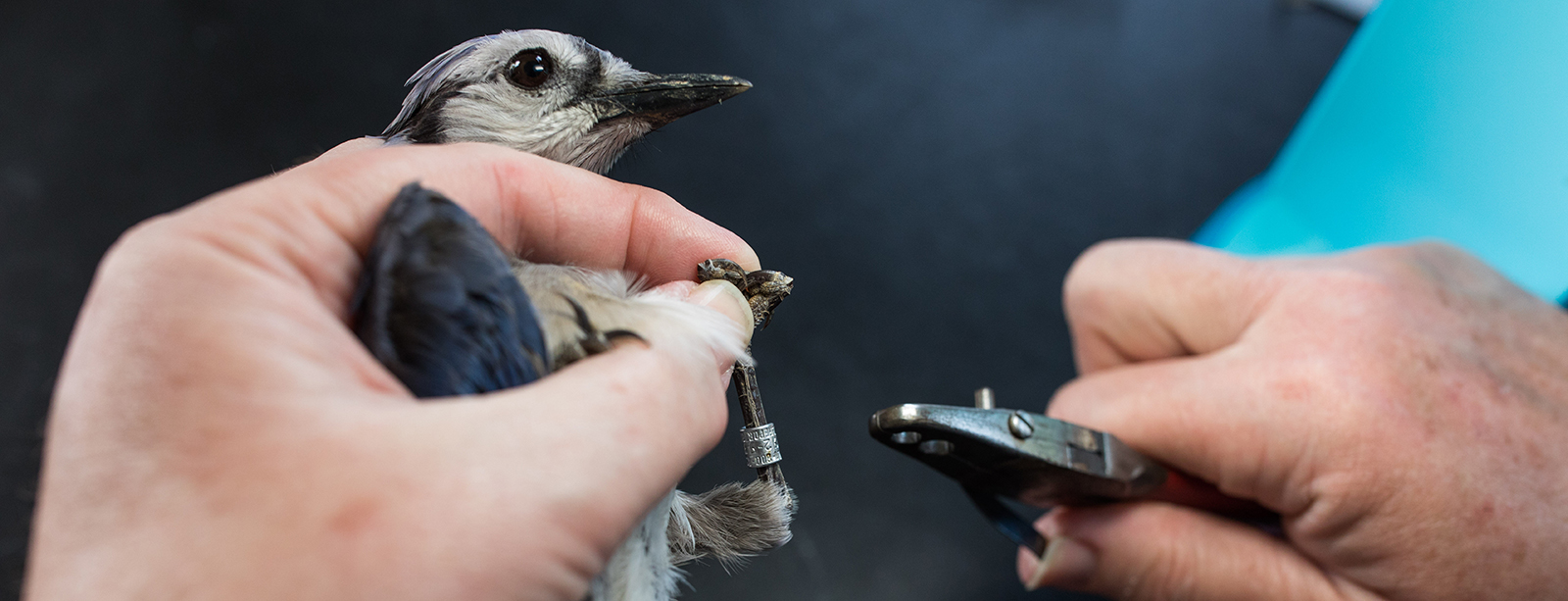
General Information
The Powdermill Avian Research Center offers banding workshops throughout the year for individuals wanting to be trained in bird banding or to brush up on skills they already possess. We offer at least one workshop in the spring (mid-May) and one workshop in the fall (mid-September) annually. We offer two types of in-person workshops: our “Extraction and Banding Workshop” focuses on extracting birds from mist nets and banding methods while our “Ageing Birds by Molt Workshop” focuses on ageing birds via molt limits and other reliable techniques. Our workshops cost $850 per person and include housing and breakfast/snack food throughout the morning. For each workshop, we offer a discounted rate of $550 for a limited number of students who will be paying for the workshop themselves.
The Extraction and Banding Workshop is designed for individuals with little or no banding experience, and focuses on banding ethics, banding methodology, safe handling of birds, and extraction of birds from mist nets. Participants will be introduced to molt terminology, learning to age passerines using molt limits, the Pyle Guide (Identification Guide to North American Birds by Peter Pyle), and molt cycle terminology.
Participants in the Ageing Birds by Molt Workshop are expected to be proficient in handling and extracting birds from nets. The workshop focuses on molt terminology, learning to age passerines using molt limits, interpreting the Pyle Guide, and using molt cycle terminology. This workshop is an excellent primer for the NABC (North American Banding Council) Bander Certification as we will cover topics in the NABC banding handbook and study guide.
We also offer an Ageing Birds by Molt Limits Virtual Workshop. This online workshop will focus on honing participants’ aging and sexing skills and their ability to recognize and interpret molt limits. Although there is not a hands-on component of this workshop, participants can use the knowledge gained from this workshop to pursue their own research projects or to support other banding operations.
Participants virtually join (via Zoom) sessions that cover ageing and sexing techniques using photographs and video of live birds caught and banded at Powdermill. The workshop also includes presentations and discussions of banding ethics, banding methodologies, molt strategies and terminology including discussions of molt cycles, how to use the Pyle Guide, ageing and sexing techniques, and how to use banding data once it’s been collected.
The cost for our Virtual Workshop is $250 per person for three days of instruction (roughly 8am-4pm, Eastern Time). Students who are paying their own way and Latin Americans working in Latin America will be charge a discounted rate of $150. Workshops are not recorded, so please keep that in mind as you check your schedule and factor in time differences between your location and southwest Pennsylvania.
Our in-person workshops are approved by the North American Banding Council; all workshops are taught by NABC-certified trainers and follow NABC-approved principles, standards, and ethics.
If you are interested in attending a workshop please fill out the workshop Google Form. Submission of the google form does not guarantee a place in the workshop. Space is limited, therefore priority will be given to those with opportunities to continue to utilize the skills we teach through work or volunteering.
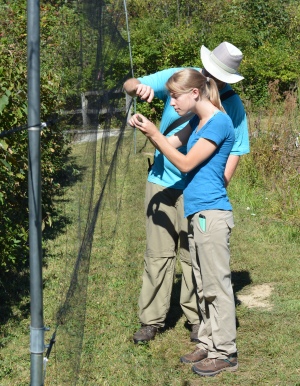
Our Next Banding Workshops:
We will hold an Ageing Birds by Molt in-person workshop in spring 2025:
May 6-10, 2025 **CURRENTLY WAITLISTED**
We will hold the following in-person workshops in fall 2025:
September 9-13, 2025 – Extraction and Banding workshop
September 23-27, 2025 – Ageing Birds via Molt workshop
We likely will hold two virtual workshops in early 2026. Please continue to check the website for updates and schedules.
Please use our Google form to indicate your interest in attending a Banding Workshop at Powdermill. Please be aware that the google form is not a registration. A few months in advance of the workshop dates, our Banding Program Manager will contact eligible candidates with an invitation to register and send payment, along with additional instructions.
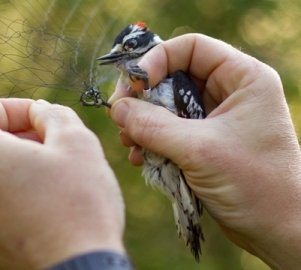
What to Expect When You Are Registered
We will send reading materials in advance of the workshop start date. Included are papers on ageing and sexing songbirds, molt terminology, North American Banding Council publications, and Powdermill banding procedures
Workshoppers should plan to arrive by Monday evening. Lodging is a furnished house or cabin near the banding lab with internet access. The first workshoppers to arrive can pick up the key from the operations coordinator at Powdermill Nature Center, approximately 0.25 mile from the banding lab (1795 Route 381, Rector, PA 15677).
Workshop activities and instruction will revolve around the normal daily banding operation at Powdermill. The workshop begins with the opening net round which is 30 minutes before sunrise. Workshoppers who want to assist with opening the nets should be at the banding lab five minutes prior to the opening round. Coffee will be ready and we will have food available throughout the morning. If conditions are safe for banding, the nets will remain open for six hours and be checked every 40 minutes.
Workshoppers will begin by observing instructors during the banding process, rapidly progressing to hands-on practical experience. Participants in the Extraction workshop will be taught safe handling practices the first day and in subsequent days be given one-on-one instruction on extraction at the nets. Later in the course, as time and advancement allow, they will have the opportunity to band birds and discuss criteria used to age and sex birds. Participants in the Molt workshop will initially be shown molt limits in the hand but will progress to ageing birds on their own, and will be “quizzed” by the final days of the workshop. Participants may ask to join in on net rounds or banding, and are encouraged to observe and participate, as time allows, in the parts of the banding operation that interest them.
*The safety and well being of every bird is our top priority, so every workshopper will not handle every bird. However, every effort will be made for workshoppers to see interesting molt limits/strategies or interesting species.
Much of the workshops will be spent in the field with live birds; these sessions will be complemented with afternoon or evening presentations and discussions. Participants are encouraged to ask many questions and engage in discussions about the banding or ageing and sexing process. Similarly, the afternoon presentations are meant to be interactive – participants who ask questions and make it into a discussion rather than a lecture often benefit more.
Participants may find it useful to relax after each banding day and presentation. Many spend the afternoons birding or go into town for meals or drinks. Let your brain process the information passively. Many participants feel a little overwhelmed by the information on the first day, but find that the material becomes easier to understand each day and “clicks” relatively quickly.
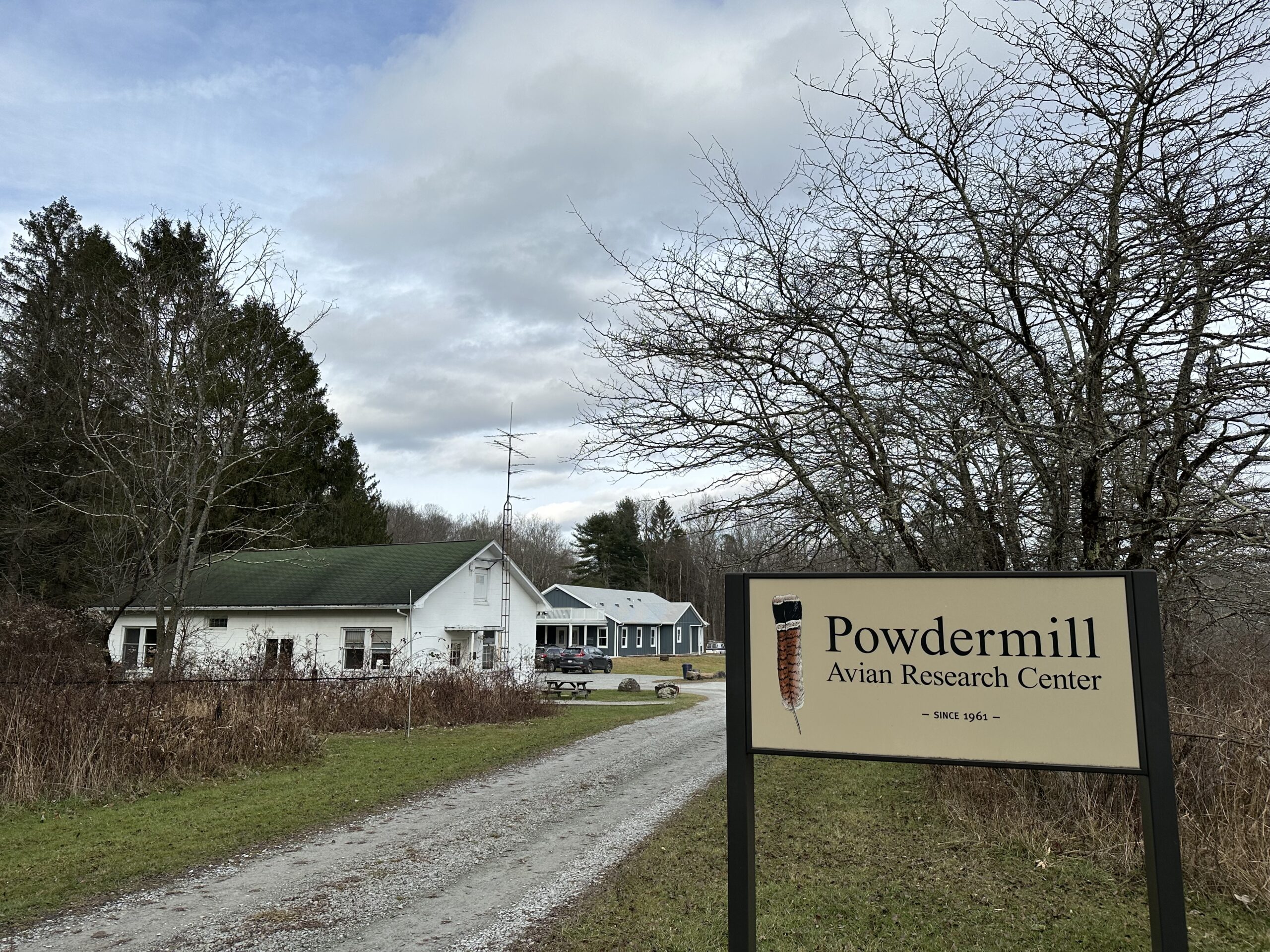
About the Area
Powdermill Nature Reserve is somewhat remote and sits in the valley between two ridges with a lot of surrounding state park and forest lands (i.e., lots of opportunities for hiking, exploring, etc.). Ligonier, about 8 miles away, is the closest town and has plenty of shopping, restaurants, and a grocery store where you can get supplies for lunch and dinners. A short drive farther west on Route 30 (~15 minutes) will take you to Latrobe, the nearest city with large shopping centers and medical facilities. Places worth visiting during your downtime include Linn Run State Park (4 mi), Forbes State Forest (5 mi), Laurel Summit State Park (10 mi), Frank Lloyd Wright’s Fallingwater (25mi), and Ohiopyle/Ohiopyle State Park (30 mi).
What to Pack
• Layers (warm/hot days can start with considerably cold mornings)
• Sleeping bag or sheets, pillowcase, blankets, towels and washcloths (the cabins do not come with linens)
• Soap and personal items
• Boots – come prepared for mud! Many people like rubber boots for the net lanes
• Notebook and pen/pencil, Pyle Guide and field guides you use when you band
• Books, reading material, binoculars, hiking boots, etc. Expect to have some free time in the afternoon and at night
• Banding equipment (for Molt Workshop) – this is not a necessity as we have everything needed on a daily basis but you may have a pair of pliers you are comfortable using and we’ve found you can never have too many wing rules during a calibration session. Please mark your own equipment!
• Water bottle
• Drinking water (OPTIONAL – tap water is tested and good to drink, but smells a bit metallic)
Still have questions?
Please read through the FAQ’s from past workshops. If you can’t find your answer there, please fill out our contact form and we will be in touch soon: https://powdermillarc.org/contact-us/.
Banding Workshop FAQ’s
